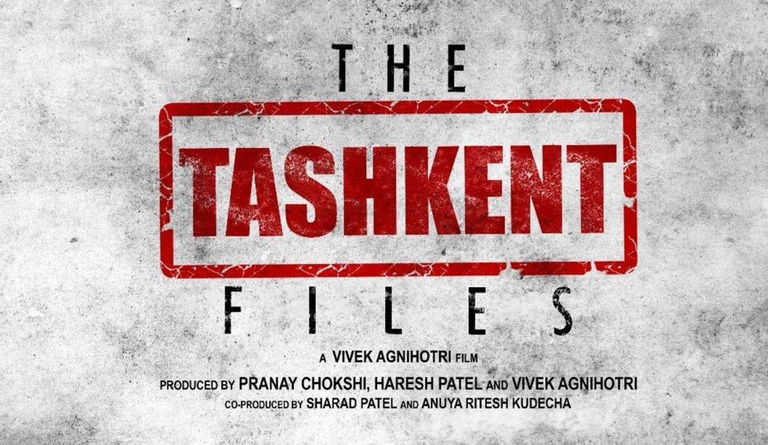

In the early morning hours of 11th January 1966, Lal Bahadur Shastri who was the second prime minister of India died right after signing a peace agreement with Pakistan (called the Tashkent Declaration). His family had always alleged foul play in his death and demanded an autopsy which was not conducted. History tells us this much but in the current season, where political movies are dime a dozen, The Tashkent Files is yet another political movie that raises doubts about one of the most intriguing and mysterious deaths of an Indian Politician, but do they succeed?
The story is that of a journalist, Raagini (Prasad) who posts an article about the mysterious circumstances of Shastri Ji’s death based on material she receives from an unknown entity. Her article leads to a public outcry and pressure on the ruling party to create an inquiry into the matter with her as one of the members of the inquiry committee. This film tries to investigate the matter of Shastri Ji’s death by invoking testimonies of KGB defectors and retired CIA officers as well as raising questions on why an autopsy was not conducted in India and what happened to the witnesses. There are many (conspiracy) theories laid out in front of the audience and it is on you to determine whether you believe any of them.
There is an undeniable influence on the film, that of one of the most classic courtroom dramas ever made: 12 Angry Men (1957). The committee scenes, where Raagini tries to convince the others are very similar to Henry Fonda’s character from 12 Angry Men. Alas, the similarities end there because while 12 Angry Men is remembered as one of the most influential films, The Tashkent Files will not be remembered at all.
The first half of the film is more cogent and cohesive as far as the narrative as concerned but the second half is where the film unravels completely. The director has been very careful to not name any real people directly so as not to invoke the wrath of a particular political party but in doing so, he has done the film a disservice because he has mixed facts with fiction without actually taking care to blend the two carefully.
With respect to the acting, there are several well-known actors in the film but many of them are completely wasted in their roles. Mithun Chakraborty as the leader of the opposition has a fairly meaty if somewhat confusing role. Pankaj Tripathi, who is easily one of the best actors in the industry at present, is in a weird role as a racist Scientist. He does the best that he can and evokes some of the only laughter this movie provides.
If you remember Shweta Basu Prasad from her childhood roles on TV shows, she is all grown up and tries to hold the film together in the lead role of Raagini. Unfortunately for her and all people involved in the film, the narrative is not consistent and the characters even more so and the long runtime does not help.
It is a pity the way this film turns out because Shastri Ji’s death is one of the most intriguing mysteries in Independent India’s history and it deserved a better herald than The Tashkent Files is able to provide.
Few things set the stage for horror quite like a troubled teen, a secluded town,… Read More
Mission: Impossible – The Final Reckoning marks the eighth chapter in the long-running action spy… Read More
Finding Nicole is a dramatization based on the harrowing true story of Nicole Beverly, whose… Read More
Final Destination: Bloodlines marks the return of the cult horror franchise, helmed this time by… Read More
In our digital and video age, more musicians are mixing cinematic strategies to sell their… Read More
A feminist sex robot questioning her own existence might sound like the setup for satire,… Read More
We use cookies, just to track visits to our website, we store no personal details.
View Comments